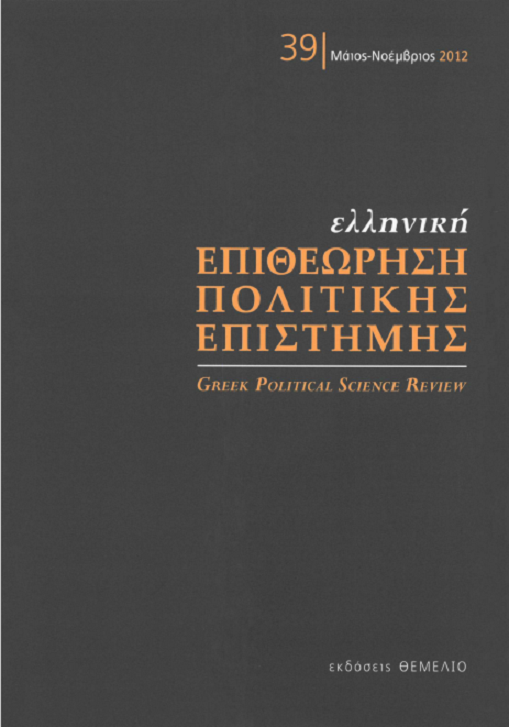Le choc de la nouvelle? Maastricht, déjà vu and EMU reform
Περίληψη
This paper explores the extent to which current reforms of the Eurozonen governance remain encased in the constraints of the Maastricht Treaty -the narrowness of its underlying paradigm; the gaps and imbalances of its design -and the implications for the future of the euro. With a model of "sound money, sound finances", based on the precepts of German ordo-liberalism, a vulnerability was exposed: it lacked the instruments, not only to aid, but also to police. This was exacerbated by the shallowness of public legitimation, ignored from the outset. The uncertainty, delays and division displayed by the Eurozone's response to the crisis owed much to the "lock-in" of Maastricht. The paper includes a critical reassessment of Dyson and Featherstone (1999).
Λεπτομέρειες άρθρου
- Πώς να δημιουργήσετε Αναφορές
-
Featherstone, K. (2017). Le choc de la nouvelle? Maastricht, déjà vu and EMU reform. Ελληνική Επιθεώρηση Πολιτικής Επιστήμης, 39, 20–39. https://doi.org/10.12681/hpsa.14544
- Ενότητα
- Αφιέρωμα

Αυτή η εργασία είναι αδειοδοτημένη υπό το CC Αναφορά Δημιουργού – Μη Εμπορική Χρήση – Παρόμοια Διανομή 4.0.
Οι συγγραφείς θα πρέπει να είναι σύμφωνοι με τα παρακάτω: Οι συγγραφείς των άρθρων που δημοσιεύονται στο περιοδικό διατηρούν τα δικαιώματα πνευματικής ιδιοκτησίας επί των άρθρων τους, δίνοντας στο περιοδικό το δικαίωμα της πρώτης δημοσίευσης. Άρθρα που δημοσιεύονται στο περιοδικό διατίθενται με άδεια Creative Commons 4.0 και σύμφωνα με την οποία μπορούν να χρησιμοποιούνται ελεύθερα, με αναφορά στο/στη συγγραφέα και στην πρώτη δημοσίευση για μη κερδοσκοπικούς σκοπούς και με δικαίωμα τροποποίησης μόνο με παρόμοια διανομή (αν αναμείξετε, τροποποιήσετε, ή δημιουργήσετε πάνω στο υλικό, πρέπει να διανείμετε τις δικές σας συνεισφορές υπό την ίδια άδεια όπως και το πρωτότυπο).


